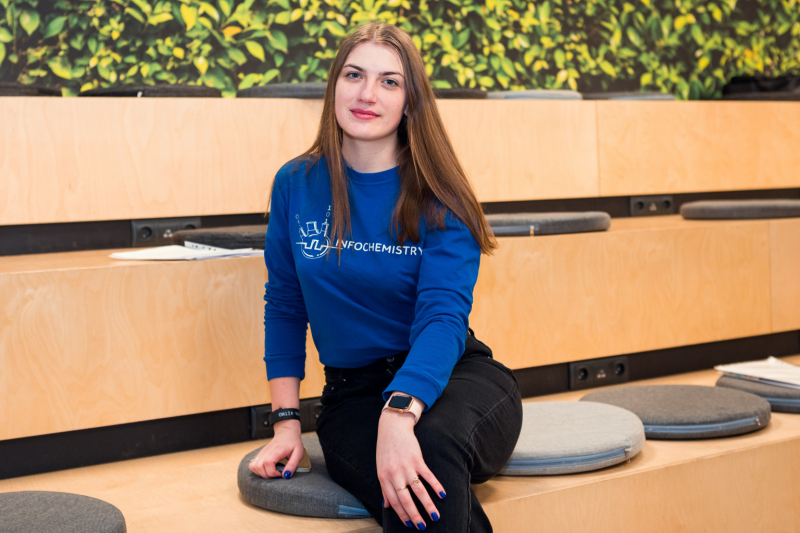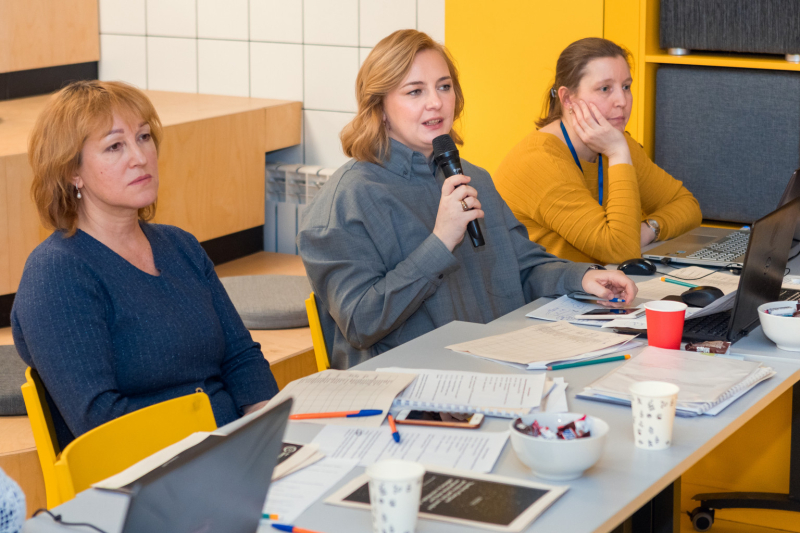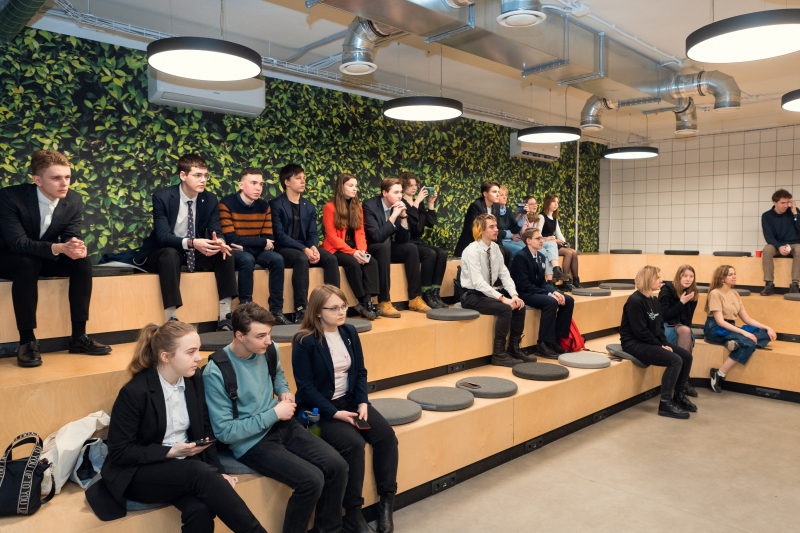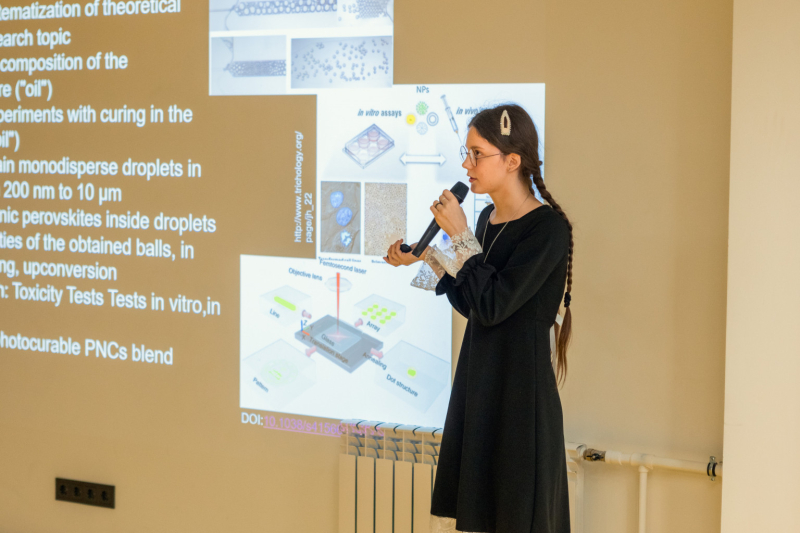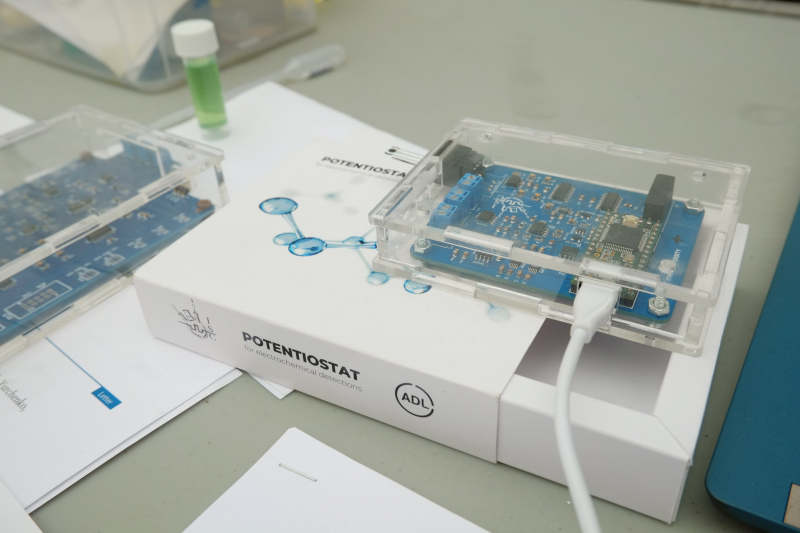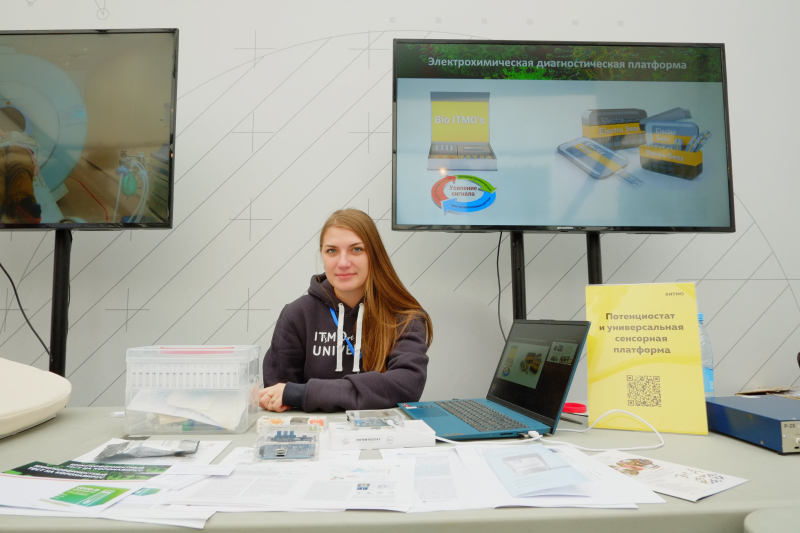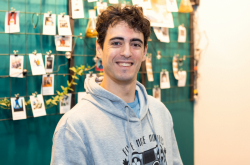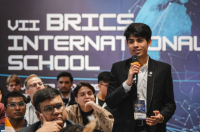Choosing chemistry for Bachelor’s studies
I can’t honestly say I’ve always wanted to do chemistry. I just liked the subject and was good at it. At the same time, I was certain that I wouldn't be taking math and computer science exams, opting for life sciences instead.
With this in mind, there wasn’t that much I could choose from: there was medicine, biology, and chemistry. Medicine is a life-long commitment, and it’s very complicated. Biology for me was associated with a lot of field work, while chemistry seemed to present many opportunities for my future career. I was thinking of getting into pharma, forensics, or analytical chemistry.
I scored 100 points in my chemistry Unified State Exam, so I could choose from several universities – I applied to ones in Moscow, St. Petersburg, and Kazan, my hometown. I got into all of them, but decided to settle on St. Petersburg State University because I wanted to move to the northern capital.
Studying there turned out to be hard for many reasons. Out of our cohort of 60 students, only 25 graduated while the rest dropped out. Personally, I was also thinking of transferring but everyone told me that if I graduate from there, all doors would be open for me.
Why ITMO?
I learned about ITMO from a friend who was already studying at SCAMT. She told me about the friendly atmosphere at the university, with no strict hierarchy between students and lecturers. I was also told that Master’s students actively engage in science and have many opportunities for academic mobility.
This turned out to be true! As soon as I enrolled at the university, I started working with an atomic force microscope. Before that, I only watched these devices from afar, but now I was taught how to use them. What’s more, even Bachelor’s and school students are allowed to work with such appliances, given that they successfully pass the necessary training.
Moreover, my Master’s program was taught entirely in English. This inspired me to apply for international mobility programs – for instance, I went to Finland to study at Aalto University.
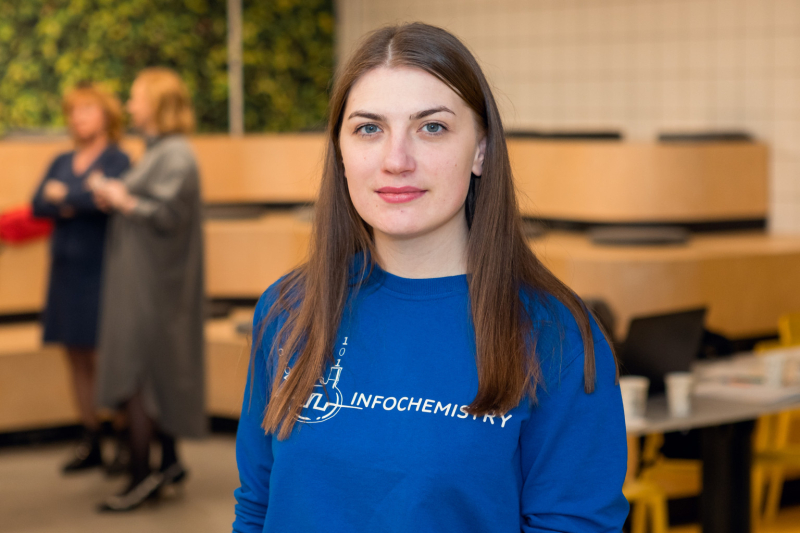
Anna Baldina. Photo by Dmitry Grigoryev / ITMO.NEWS
PhD studies and Infochemistry Scientific Center
As a Master’s student, I was supervised by Ekaterina Skorb. Back then, she had just come back from Harvard and was assembling a research group, so I became one of her first students. Together, we started developing the field of electrochemistry at ITMO, first at ChemBio Cluster and then at the newly-founded Infochemistry Scientific Center. I was lucky to be continuing along the path I ventured onto as a Bachelor’s student, studying electrochemical analysis. When our lab became a department within the center, I was responsible for electrochemical appliances as a lab assistant and engineer.
In the summer after my graduation, Dr. Skorb suggested that I manage the Chemical Technologies (now Infochemistry) Bachelor’s program and develop its curriculum. Back then, I wasn’t a PhD student yet, but I knew I wanted to study further. I also knew that I didn’t want to split my attention between a job and my studies at the university, so I accepted her offer. It helped that I generally liked doing the associated paperwork.
What started with me organizing IChem Prize, a contest for school students, and an open house day, ended up with me developing concepts and curricula for two Master’s and one Bachelor’s programs.
Read also:
ITMO University Hosts the First IChem Prize Contest for School Students
Merging academia and industry
I had the chance to work in the industry: having completed my first year as a Master’s student, I started working at a major alcohol production facility as a chemical analyst and quality control engineer. After nine months there, I came to realize that it was too repetitive for me.
That’s why I opted for a PhD program at ITMO as my next step, even though my salary at the university was lower than what I was making at the time. I saw this as an opportunity to do research, to learn, win grants and contests, and travel to conferences and other universities.
It’s funny now to think back to my childhood, when my mom would ask me what I wanted to do when I grew up. I would tell her that I didn’t know, but also that I love learning and would be very happy to be paid to do that. And I ended up doing just that!
After three years as a PhD student, my salary surpassed the one I had in the industry, while my job was and is much more versatile and active. I attend seminars, exhibitions, and conferences. There are so many opportunities here to earn money and acquire more knowledge, experiences, and connections. You get to combine your work, your studies, and your research.
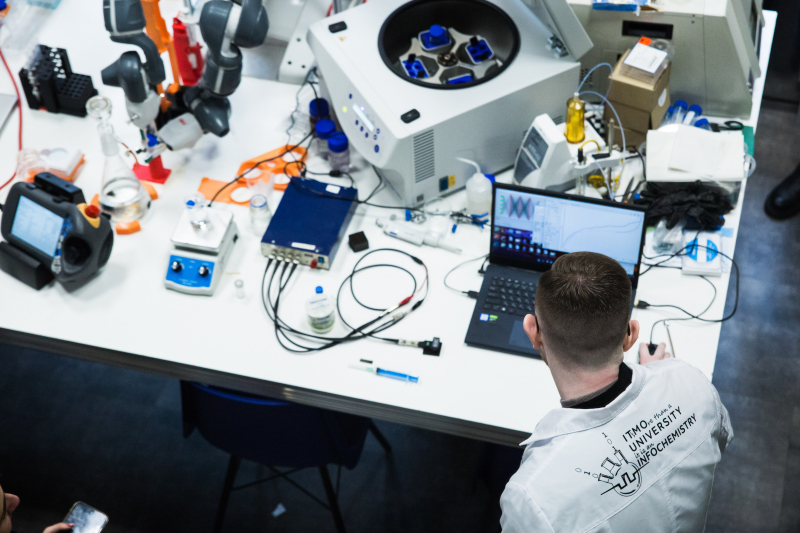
The Infochemistry Scientific Center. Photo by Dmitry Grigoryev / ITMO.NEWS
Research interests and PhD thesis
I do research in the fields of electrochemistry and electrochemical analysis, and my thesis is about regulating near-electrode processes by introducing polyelectrolytes into the system. It sounds like a fundamental piece of research, but that’s because my defense will be in the field of physical chemistry.
Apart from that, I work with more applied topics, too. As a Master’s student, I started developing test-strips (ion-selective sensor electrodes on a thin film) for detecting sodium and potassium. The article we published on the topic was widely cited because we were the first to suggest such a solution.
Next, we started designing carbon fiber-based microelectrodes for detecting microelements in various liquids, including wastewater, drinking water, and saliva.
Then, we turned to a system based on the antigen-antibody interaction that is meant to detect viruses and bacteria. So, in my work I had the chance to consecutively study every bioanalyte: ions, microelements, and biological molecules. All of them come together in the potentiostat-based sensor platform that we’ve developed in collaboration with ITMO’s robotics and IT specialists.
In terms of more fundamental research, physical chemistry, I study near-electrode processes and ion diffusion. This research can help improve the analytic capacities of our platform by reducing the sensors’ response time and detection threshold (so that our sensor would react to the smallest concentrations of substances), making the device more stable and durable.
I like the fact that I get the chance to develop practical applications for my research. I am a chemist who loves talking about her work, demonstrating visible results, and working on something that can be applied in daily life.
Plans for the future
Once I defend my PhD thesis, my dream is to stay here at ITMO to expand our Infochemistry Scientific Center and promote chemistry at ITMO. I don’t want to simply become a lecturer, but to actually update the educational process. I am planning to go on an internship to a university abroad to see how they organize their academic processes and research. Then, I would use this experience to come up with something brand new for ITMO.
I truly believe that our university is one of the best places in Russia for young scientists. Here, every PhD can find something to their liking: you can do sports, bore deep into research, put all your effort into teaching, scientific journalism, or design – you can even launch your startup. What’s more, you can combine all of the above and feel 100% fulfilled and happy at the university.
